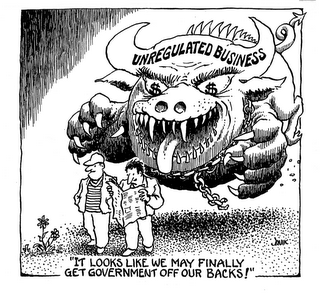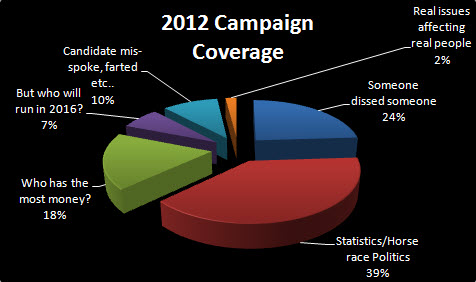Cartoons of J. Jonik
I recently stumbled across some cartoons by J. Jonik. Here's how he describes his work:
Many, or most, of these cartoons have been published in periodicals and leaflets and web-sites, etc., around the USA, and some in Germany, the UK and Australia...and beyond. Publications have included Z Magazine, Extra! (Fairness and Accuracy in Reporting), Public Citizen, Earth First! Journal, POCLAD, Food and Water, Solidarity, Synthesis-Regeneration, Compost Dispatch, Philadelphia Daily News, University City Review (Phila.), Green Left Weekly (Australia), Green Pages, Hawaii Island Journal, Funny Times, Wild Earth, Dollars and Sense, Dissent, Earth Island Journal, North Coast Xpress, Anderson Valley Advertiser, The Prism, The Partisan, Orion, Tox CAT (UK- Communities Against Toxics), Boycott Quarterly, Friends of the Earth, and others that I will add to this list when I remember them. Cartoons have been, or still are, also used at web sites of various activist groups such as NORML, and various Single Payer health care advocates. A bunch of cartoons were scattered throughout "Censored 2008" Project Censored's 2008 annual collection of top 25 Censored Stories, and in Teishan Latner's "The Quotable Rebel", an invaluable book of quotes that are especially usable by political activists.Jonik makes his cartoons available to non-commercial sites. Thus, I'm going to share a few of my favorites:


 [More . . . ]
[More . . . ]
In case the moon landing had failed
I didn't realize that a speech to be given by Richard President Nixon had already been outlined in case the moon landing attempt had failed.
Paul Kurtz discusses the nomenclature of disbelief
I've previously written about the works of Paul Kurtz. I've long admired his Neo-Humanist Statement of Secular Principles. I also agree with his concerns about "fundamentalist atheists." In fact, it was his position on "fundamentalist atheism" that likely gave rose to his contentious departure from the Center for Inquiry. More recently, Kurtz has made the argument that atheists, agnostics and other disbelievers would be best served characterizing themselves as "skeptics" rather than as atheists, agnostics or non-believers.
I would like to introduce another term into the equation, a description of the religious “unbeliever” that is more appropriate. One may simply say, “I am a skeptic.” This is a classical philosophical position, yet I submit that it is still relevant today, for many people are deeply skeptical about religious claims. Skepticism is widely employed in the sciences. Skeptics doubt theories or hypotheses unless they are able to verify them on adequate evidential grounds. The same is true among skeptical inquirers into religion. The skeptic in religion is not dogmatic, nor does he or she reject religious claims a priori; here or she is simply unable to accept the case for God unless it is supported by adequate evidence.Kurtz lists additional reasons for the use of the term "skeptic."
[S]kepticism based on scientific inquiry leaves room for a naturalistic account of the universe. It can also recommend alternative secular and humanist forms of moral conduct. Accordingly, one can simply affirm, when asked if he or she believes in God, “No, I do not; I am a skeptic,” and one may add, “I believe in doing good!”
The Rocky Anderson Alternative as President of the United States
You won't hear the mass media talking about Rocky Anderson. You won't hear Anderson speaking at any of the Presidential Debates, because the corporations that run our elections will make sure that Anderson is not invited to any of these debates. Anderson, a two-term mayor of Salt Lake City, is running as the nominee of the Justice Party. He is sorely disappointed in Barack Obama's decision to support passage of NDAA. He is a strong believer in the need to take definite steps to reduce production of greenhouse gasses (he took serious steps as Mayor). He very much supports the aims of the Occupy Wall Street (OWS) movement. He challenges Americans to reject the "fear-driven argument" that they must vote for one of the two dominant political parties. [More . . . ]
- Go to the previous page
- 1
- …
- 735
- 736
- 737
- 738
- 739
- 740
- 741
- …
- 1,721
- Go to the next page

